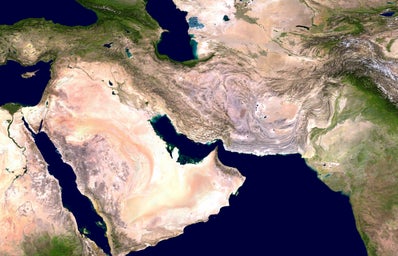Disclaimer: This is a news summary based on original reporting done by the New York Times and BBC. All information presented here is based on knowledge obtained
How did the war in Afganistan start?
The Taliban is an extreme Islamic group that ruled Afghanistan from 1996 to 2001. The group advocates turning Afghanistan into the world’s “purest Islamic country” (BBC, 2019.)
Some of their policies include strict Islamic laws and punishments, a ban on female education, as well as many films (BBC, 2019). Their policies became even more known in 2014 after the young Pakistani activist, Malala Yousafzai, gained the Nobel Prize for her work with human rights and advocating for girl’s education, which started when she lived under the Taliban regime in Pakistan.
While the Taliban was in control of Afghanistan, al-Qaeda, an extremist Islamic organization founded by Osama Bin Laden, started to install a training campus there. After the Sept. 11 attacks in New York, the United States started a counterterrorism campaign. They believed that Osama Bin Laden was behind the attacks and since the Taliban did not hand him over, the U.S. started bombing Afghanistan, starting the war (BBC, 2012.)
What happens now?
Recently, the Taliban has started new occupation strategies in many important cities in Afghanistan such as Kunduz, where they established military posts; Pul-i-Khumri that possesses important highways; and Kandahar, a city known for its historical, political, and economic importance (Thomas, 2021).
In addition, all foreign troops are scheduled to withdraw by May 1, due to a deal made by former president Donald Trump with the Taliban due to a peace agreement (Thomas, 2021). Another concern involves Afghanistan officials that were left out of the deal (Helen, 2021).
What are the options?
President Biden has two options on how to proceed. If Biden agrees to cease war and bring all troops home, the Taliban is likely to take even more control of territory due to Afghanistan’s weak security forces (Thomas, 2021). Ceasing war also brings important questions such as what Americans can actually accomplish after 20 years of war (Helen, 2021).
On the other hand, If he doesn’t comply with the cease war, the Taliban might think that the promise was void and the war will intensify (Thomas, 2021). There is also the knowledge that many Americans are tired of this seemingly never ending war, and they express their doubts that continuing it will accomplish anything (Helen, 2021).
In conclusion, President Biden will act based on his own experience in the Senate, which coincided with the period just before the United States retrieved its personnel from the capital of South Vietnam (Helen, 2021). His office will also be looking for other opinions during the NATO summit meeting that will happen this Wednesday. President Biden also says that he is not going to rush into a critical decision and will analyze the situation carefully (Helen, 2021).
References:
Cooper, Helen; Schitt, Eric; Sanger, David E. (2021.) Stay or Go? Biden, Long a Critic of Afghan Deployments, Faces a Deadline. The New York Times.
https://www.nytimes.com/2021/02/16/us/politics/biden-afghanistan-troop-withdrawal-taliban.html
Gibbons-Neff, Thomas; Shah, Taimoor. (2021.) The Taliban Close In on Afghan Cities, Pushing the Country to the Brink. The New York Times.
https://www.nytimes.com/2021/02/15/world/asia/taliban-afghanistan.html
N.D. (2012,) The history of the Afghanistan war. BBC



